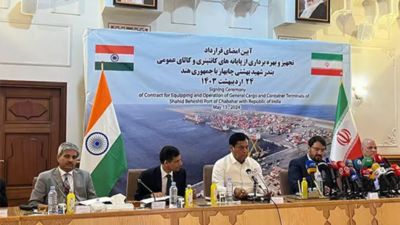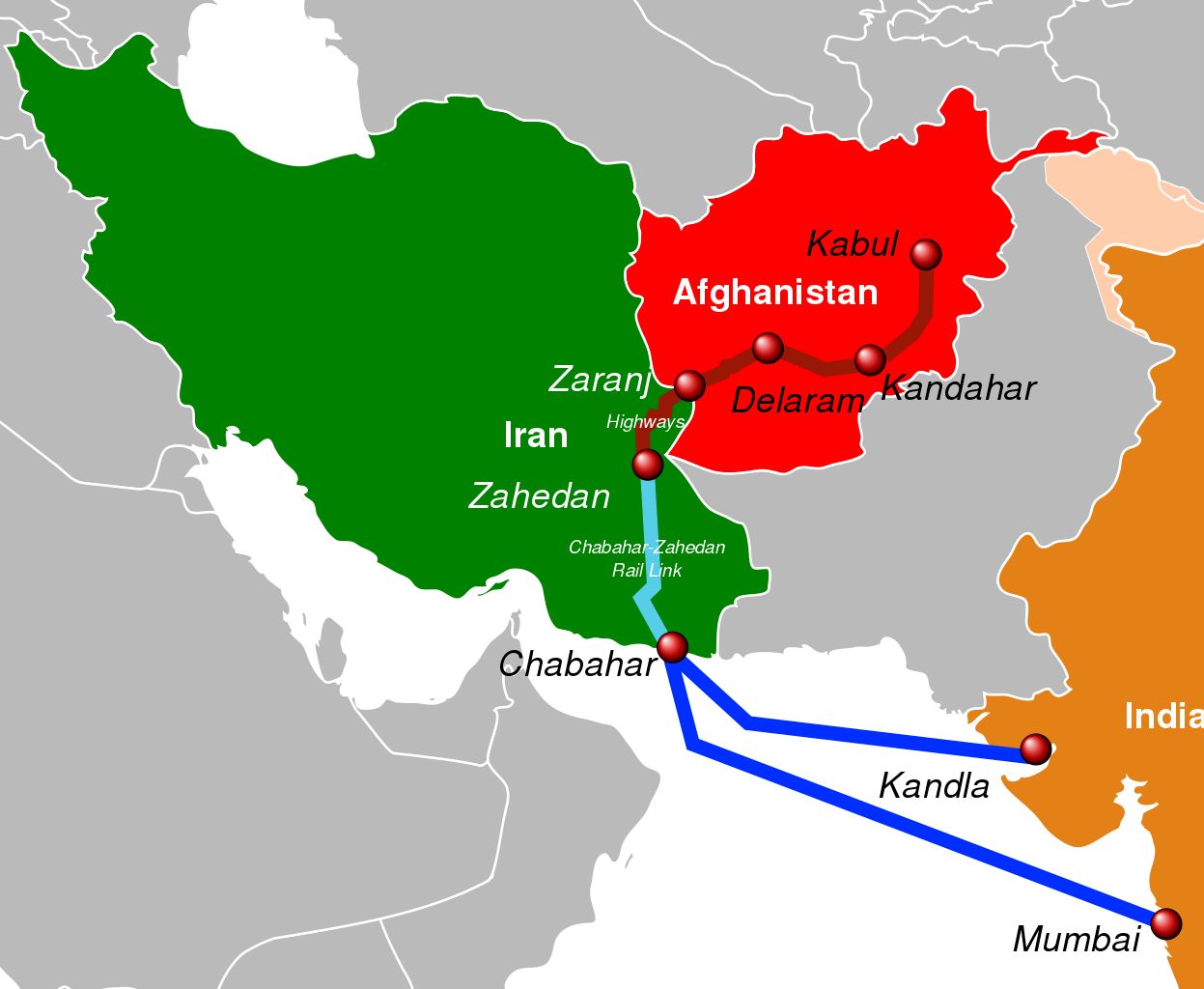In a strategically significant move, India has inked a 10-year deal to operate #Chabahar, a deep water port in Iran – a strategic gateway to Afghanistan, Central Asia, Russia and the larger European Region, bypassing Pakistan. Along with the proposed India Middle East Europe Corridor (#IMEEC), it will provide India with an alternative route to the Suez Canal, and is part of India’s strategic vision for Central Asia and beyond.
The deal strengthens bilateral relations and facilitates trade with Afghanistan and Central Asia with plans to integrate the port into International North South Transport Corridor (#INSTC). It comes at a time of heightened geo-political tensions in the Middle East, including those involving Israel and Iran.
Hours after India signed the deal, the US issued a cautionary statement, warning that anyone considering business deals with Tehran needs to be aware of the “potential risk of sanctions.”
The long-term bilateral contract on the Chabahar Port operation, signed between Indian Ports Global Limited (IGPL), a public enterprise, and Iran’s Port and Maritime Organisation (PMO), paves the way for the operation of the Shahed-Behesti port within the Chabahar Port Development Project for the next decade. IGPL will invest US$ 120 million in equipping and operating the port. India has offered an in-credit window = $250 million for mutually identified projects improving Chabahar-related infrastructure.
The consultations for the project started nearly two decades ago, soon after China signed an agreement with Pakistan to develop Gwadar port. However, it faced multiple challenges, with progress stymied by the US sanctions and regime changes. The Chabahar deal, signed in the middle of Indian elections, enhances regional connectivity, provides an alternative to Pakistan’s Gwadar Port and China’s Belt and Road Initiative (BRI) and will have regional ramifications.
Disclaimer: The article has reference to open sources including Al Jazeera, The Economic Times and Hindustan Times.







